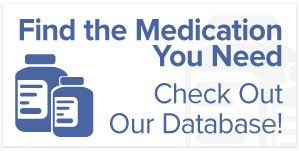Allergies can disrupt daily life, but the right allergy medication can offer relief. Whether you’re facing seasonal sniffles or reacting to environmental triggers, understanding your medication options is key to managing your symptoms effectively.
Allergies can significantly impact daily life, causing discomfort and reducing productivity. With over 50 million Americans experiencing various types of allergies each year, finding effective allergy medication is crucial. Seasonal allergies, in particular, can be challenging, with symptoms ranging from mild to severe. Therefore, understanding the available medication options is vital to manage these symptoms effectively.
Let’s explore the different types of allergy medications, how they work, and how medication assistance programs can help you afford these treatments.
Understanding Antihistamines for Allergy Relief
Antihistamines play a critical role in allergy medication. These drugs block histamine, a substance your body makes during an allergic reaction, thus easing symptoms. The latest generations of antihistamines, such as loratadine and cetirizine, are less likely to cause sedation compared to their predecessors. They are effective for treating symptoms like sneezing, itching, and runny nose associated with allergic rhinitis and can also alleviate conjunctival symptoms.
However, not all antihistamines are created equal. The FDA emphasizes the importance of choosing the right type for your needs, noting that while oral antihistamines can relieve many allergy symptoms, they are less effective at relieving nasal congestion and may require the use of additional medications or combination therapies.
The Role of Corticosteroids in Allergy Management
Corticosteroids are allergy medication particularly for severe symptoms. These medications reduce inflammation and are commonly prescribed as nasal sprays for allergic rhinitis or creams for skin allergies.
Corticosteroid nasal sprays are considered first-line treatments for moderate to severe allergic rhinitis due to their efficacy in reducing nasal inflammation and other related symptoms.
For those who suffer from chronic or severe allergies, the combination of antihistamines and corticosteroids can often provide the most comprehensive relief. This dual approach helps manage various symptoms, ensuring a better quality of life during peak allergy seasons.
Accessibility through Medication Assistance Programs
Cost should not prevent anyone from accessing effective allergy medication. Medication assistance programs in places like Boynton Beach, Florida, support those struggling with medication costs. These programs, often supported by medication assistance providers, can provide medications free or at a low-cost to eligible individuals.
Services like The Rx Helper recognize the challenges of managing allergies, especially when financial barriers exist. They connect individuals with patient assistance programs for medications, ensuring everyone has access to the treatments they need without undue financial stress.
Explore Your Options for Allergy Medication
Exploring the range of allergy medication options can be intricate, but you don’t have to manage it alone. If you’re seeking relief from seasonal or environmental allergies, consider all your options, from over-the-counter antihistamines to prescription treatments and supportive therapies.
The Rx Helper: Your Partner in Health
At The Rx Helper, we’re committed to helping you manage your allergy symptoms through access to affordable medication assistance programs. Whether finding the right allergy medication or connecting you with resources for cost assistance, our team is here to support you.
Contact us today to learn more about how you can benefit from our financial medication prescription program. With the right support and allergy medication, you can enjoy all seasons, free from the discomfort of allergies.




